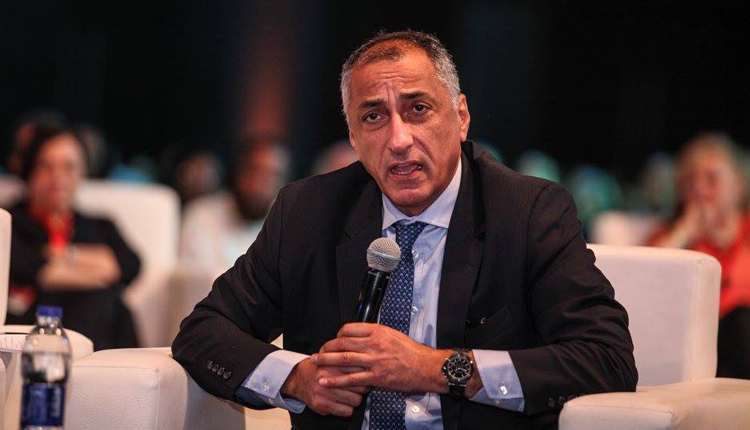Egypt’s CBE imposes cash withdrawal limits after $190.6mn withdrawn unnecessarily
Central Bank of Egypt’s (CBE) Governor Tarek Amer said a total of 3 billion Egyptian pounds ($190.6 million) has been withdrawn from branches and ATMs over the past three weeks, causing significant overcrowding, and prompting the bank’s decision to set a maximum limit for daily cash deposits and withdrawals.
Amer spoke by phone with Ahmed Moussa on Sada El-Balad channel on Sunday.
In his comments, he said that such a significant amount was withdrawn without a real need for it, and urged people to avoid overcrowding and to secure their cash needs wisely, to leave enough for others, according to Ahram Online.
On Sunday, the central bank implemented a daily limit for withdrawals of 10,000 pounds for individuals and 50,000 pounds for companies. The latter are exempt from deposit limits and from limits on withdrawals made to pay salaries.
The CBE has also set a limit of 5,000 pounds for cash deposits and withdrawals from ATM machines.
This is a reduction from the previous limit of 3,000 pounds to 40,000 pounds depending on individual cards limits.
Amer also said in the phone interview on Sunday that the CBE has given two weeks for businesses to carry out their transactions in cash until they reconcile their situation in accordance with the financial inclusion law, adding that the new daily cash transaction limits will be reviewed in two weeks.
Amer also clarified that the new banking system law imposes fines on cash operations over specific limits, and gives a month for everyone to reconcile with the new law in this regard.
Amer said 540 billion pounds is being circulated outside the banking system and about 15 million clients are carrying out their transactions online.
“Egypt’s banking system has an enormous amount of cash liquidity, the highest in the region. But there is an urgent need to abide by the preventive and precautionary procedures in the current phase to keep our health safe, so we have to avoid adopting cash transactions,” he said.
He added that fines will be imposed on auto traders who carry out cash transactions, as this is a violation of the financial inclusion system and the banking system law.
On the other hand, Amer said that the revenues of the 15 percent savings certificates that were offered by the National Bank of Egypt and Banque Misr have hit 30 billion pounds, 90 percent of which has been carried out through bank account transfers and electronic instruments, not cash.
Commenting on the domestic economic scene amid the coronavirus outbreak, Amer said Egypt is committed to providing all commodities regardless of global economic challenges.
He added that the CBE has introduced number of initiatives to back several sectors, including manufacturing, tourism, small enterprises, and the stock market.
Foreign investors have withdrawn $500 million from Egypt’s stock exchange; the CBE, in turn, has allocated 20 billion pounds to support the stock exchange, he said.
Regarding the CBE’s new procedures regarding loan payment and credit card payment postponements for six months, Amer said that the postponements will be implemented without imposing delay fines, commissions, or extra fees, except for interest.
Amer said that Egypt’s economic growth rates are among the highest globally, adding that Egypt has exported $12 billion in cash abroad over 2019, and $11 billion in 2018.
Further, Egypt’s economy has spent $350 billion over the past three years, while external debt has recorded an increase of only $50 billion.
He said that foreign exchange reserves, which have reached 45 billion pounds, can cover Egypt’s imports for ten months.
Amer also highlighted the role of Egypt’s economic reform programme, which generated the current foreign reserves and helped in achieving exchange rate stability despite the crises the globe is witnessing.
He said that the coronavirus outbreak has given ample room for Egypt’s productive sector, especially given the stimulus procedures the country has recently adopted.
Fuel prices, which will be reviewed by the fuel automatic pricing committee by 1 April, are set to be reduced, given the decline in oil prices and the US dollar, Amer said.


